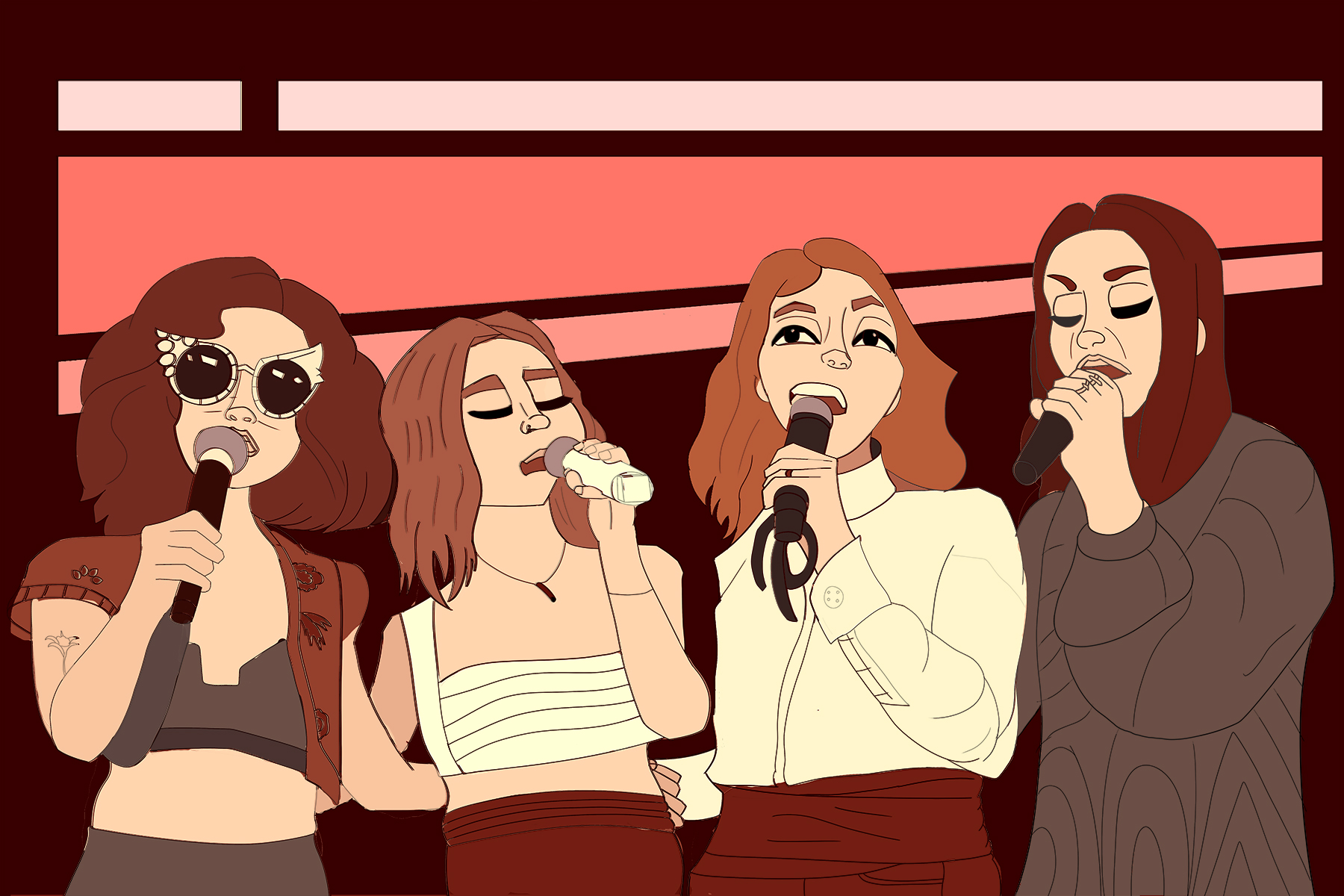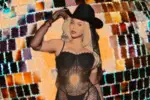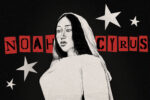If you turn on your local country music radio, you’ll probably hear the voices of Keith Urban, Jason Aldean, Thomas Rhett and Luke Bryan. If the landscape seems a bit too male-focused, that’s because it is. Contemporary country music continually feeds a habit of excluding female artists — in fact, NPR reports a study that only 16% of mainstream artists are women.
In 1985, country superstars Willie Nelson, Johnny Cash, Kris Kristofferson and Waylon Jennings formed the Highwaymen. Now, in 2019, enter the Highwomen.
In comparison, the Highwomen seem like a natural counterpart to the all-male supergroup, albeit 40 years in the making. However, whereas The Highwaymen formed after the peak of their careers, the Highwomen came together at their career highs.
A quartet composed of up-and-comers Brandi Carlile, Natalie Hemby, Amanda Shires and Maren Morris, the Highwomen formed as a direct response to the disproportionate amount of women finding success in the scene and are on a mission to bring women back into the country music spotlight. In an interview on “The Ellen DeGeneres Show,” Shires said, “There are only currently two women’s voices that you can actually hear on the radio.” Even though the musician was arguably saying this to be sarcastic, her point still rings true.
Interestingly, Morris is probably one of the aforementioned artists that Shires was referencing. With her hits “My Church,” “I Could Use a Love Song” and, most recently, “Girl,” Morris is certainly not unknown in the country scene. However, this fact does not ensure that success is easier for her. “They play me, but when you compare it to some of my male peers, [the difference is] staggering,” said the musician in her appearance on “Ellen.”
The Highwomen’s debut, self-titled album was released in September. The album features a dozen tracks infused with an empowered female spirit. Some songs are light, fun and danceable like “My Name Can’t be Mama,” whereas others, such as “Cocktail and a Song,” embody a heavier heart. Above all, each track adopts the emotional intensity that has made country music so profound.
The album begins with the title track, “Highwomen.” Modeled after the Highwaymen’s song — which was also self-titled and penned by the same songwriter — each singer in the quartet embodies the character of a persecuted woman. Whether she’s a migrant crossing the desert, a witch slain in Salem, a freedom writer or pioneer preacher, the departed women still live on through the singers’ lyrics. Furthermore, the track features English country/soul singer Yola and although the song does not forget its connections to the “Highwaymen” song, this new version is superior by far.
Acting as the symbol of the artists’ message, “Redesigning Women” provides an honest analysis of the 21st-century woman, with lyrics like: “Redesigning women / runnin’ the world while we’re cleaning up the kitchen / makin’ bank, shakin’ hands, drivin’ 80 / tryna get home just to feed the baby.”
Penned by Hemby, the song displays the multifaceted role of the modern woman; she’s got to give 110% at the office, at home or wherever she is. Relatedly, the music video portrays the women literally casting their stereotypes aflame as they are joined by other country icons like Wynona Judd, Cassadee Pope and Tanya Tucker. It’s truly a bold song meant to empower and unite women everywhere.
As if female empowerment wasn’t radical enough for the world, the Highwomen are joining queer and country in an unlikely union. Carlile herself is gay, and even though gay artists find it difficult to succeed in the mainstream music industry overall, this hardship is doubled when applied to country music. Most country music emphasizes conservative values, straight marriages and conventional families. Queer artists do not possess a foothold in the genre — so the Highwomen created one.
“If She Ever Leaves Me” drops a bomb in the very first verse. Written by the group for Carlile, the song tells the story of a woman being hit on by a man at a bar.
“It takes more than whiskey to make that flower bloom / By the third drink, you’ll find out she’s mine,” sings Carlile. The revelation of a queer relationship is not to be taken lightly, and to be honest, it’s pretty awesome.
“I’ve loved her in secret, I’ve loved her out loud,” wails the chorus. The story is reminiscent of Carlile’s own relationship and is honest about its imperfections. Plus, the song ends on a killer line: “If she ever leaves me, it won’t be for you.”
The attitude of “Don’t Call Me” is reminiscent of the fiery energy that many female country artists boasted in the 1990s and early 2000s. The track is backed up by a rock’n’ roll-esque sound that Rolling Stone compared to the Doors, with lyrics like “Call your lawyer, if you can afford one / but don’t call me.”
Rounding out the album’s progressive messages is “Crowded Table,” a subtle song that is still infused with meaning nonetheless. The song’s positivity shines through with a message of inclusion and intersectionality while still embodying the family-oriented mentality of a southern upbringing.
“I want a house, with a crowded table / and a place by the fire for everyone,” the quartet demands. “If we want a garden, we’re gonna have to sow the seeds.” The song’s subject matter stresses acceptance and equality and does a fantastic job of acknowledging that people with different identities need to be celebrated.
Overall, the Highwomen make music about love and the intensity of the human experience, which is really what country music has always done. Conversely, the fact that the group aims for inclusivity far more than contemporary and classic country artists showcases that the Highwomen possess a deeper understanding of the genre’s untapped potential.
The radio’s response to the Highwomen’s outcry for representation will reveal how much the country scene is willing to evolve. Will the radio start playing the records of the Highwomen and pave the way for more female artists to find an audience? Or will the group simply pass by unrecognized? If the latter scenario proves true, it will only validate the reason that these women joined their talents to begin with. However, if their endeavors are rewarded, the rise of the Highwomen could shape country music forever.
















